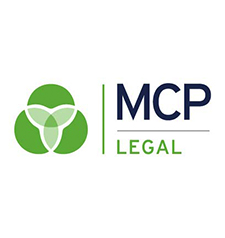
Death results in a very emotional and stressful time for family and friends, both immediately and for the following months, as they take care of the deceased’s financial affairs.
Knowing how your dwelling can be disposed of in the most tax effective way may provide peace of mind that your beneficiaries will receive the optimal financial outcome.
If you sell a dwelling which was used solely as your main residence for the entire period of ownership, any capital gain or loss arising from the sale is generally ignored for tax purposes. This is known as the ‘main residence exemption’.
Some frequently asked questions about how your legal personal representative (“LPR”) or, a beneficiary of your estate can claim the main residence exemption after you pass are outlined below.
If the dwelling is owned in your name (that is, not the name of a company or trust), there should be no CGT payable when it passes on to your LPR or a beneficiary of your estate.
If your LPR or beneficiary sells the dwelling and the contract settles within two years of your passing, they should be able to claim the main residence exemption (and therefore pay no CGT as a result of the sale) if the following circumstances are satisfied:
It was acquired on or after 20 September 1985 (i.e. it is a post-CGT asset), was the main residence immediately before passing and it was not being used to produce assessable income; or
It was acquired before 20 September 1985 (i.e. it is a pre-CGT asset), regardless of whether it was used by you as your main residence.
There is no need for your LPR or beneficiary to use the dwelling as their main residence during the two year period from the date of passing. Even if the dwelling is rented for a period afterwards, the main residence exemption can be claimed as long as the dwelling is sold within two years.
The main residence exemption may still be available if the dwelling was, from your date of passing until the date it is sold, the main residence of one or more of:
Your spouse (provided you were not permanently living separately at the date of your death);
An individual who had the right to occupy the dwelling under your will; or
The person to whom the dwelling passed on as a beneficiary.
If your main residence stops being your main residence (for example, because you move into a nursing home), you may choose to continue to treat it as your main residence for tax purposes. If the dwelling is not used for income-producing purposes during your absence, it can be treated as your main residence indefinitely. If the dwelling is used for income-producing purposes, it can be treated as your main residence during your absence for a maximum period of six years.
On your death, you and your spouse would be treated as if you each owned a 50% share in the dwelling and your surviving spouse would be taken to have acquired your interest in the dwelling as if he or she is a beneficiary of your estate. The rules as discussed above will apply to your spouse in relation to your 50% share in the dwelling.
For more information:
e: lawyers@mcpgroup.com.au
p: (03) 9620 2001
w: www.mcplegal.com.au
The advice provided in this blog is intended to be general advice only and should not be relied upon. There may be exceptions to the general rules, particularly where a beneficiary of your estate is an exempt entity, the trustee of a complying superannuation entity or a foreign resident.
The important point to note is that your LPR and beneficiaries of your estate should consider the CGT consequences of decisions made regarding the timing of the sale of your dwelling, and who is permitted to reside in the dwelling in order to minimise the tax payable by your estate or beneficiaries.